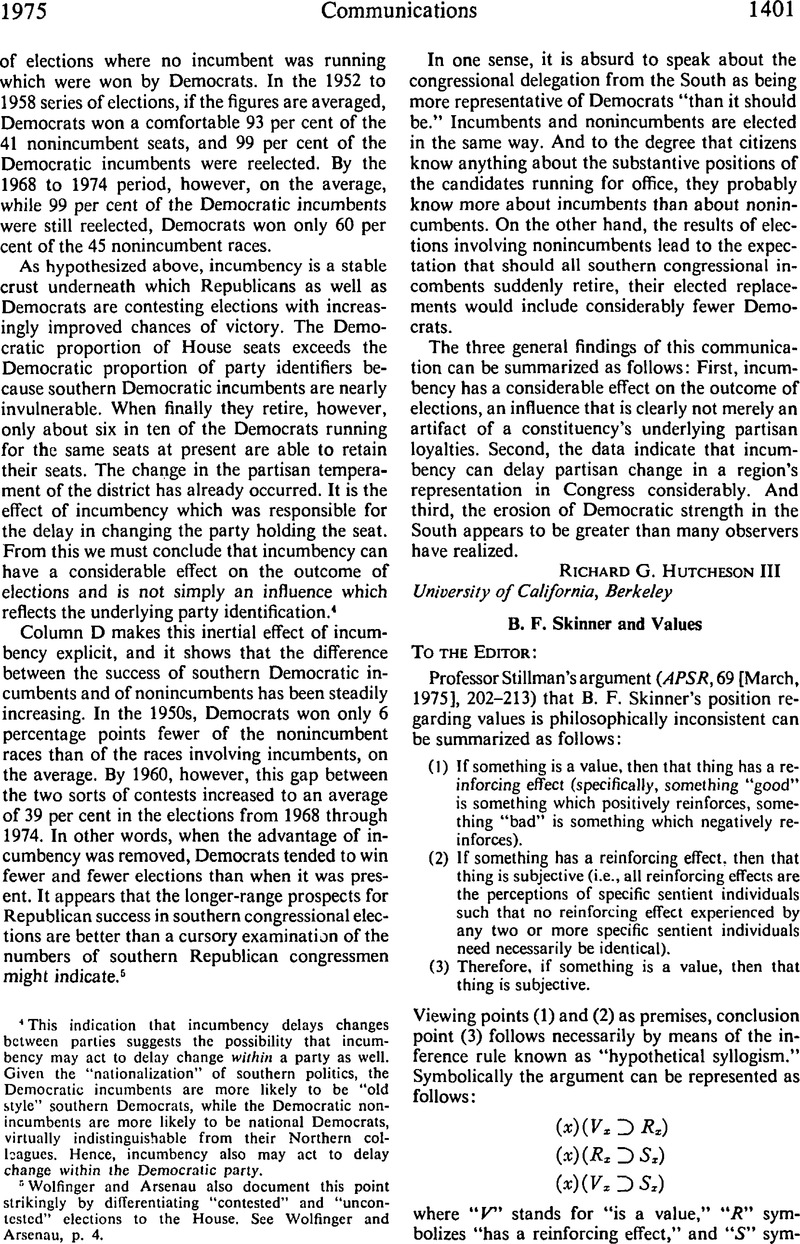No CrossRef data available.
Article contents
[no title]
Published online by Cambridge University Press: 01 August 2014
Abstract

- Type
- Communications
- Information
- Copyright
- Copyright © American Political Science Association 1975
References
1 At first glance it may appear that Professor Stillman has stated premise (1) differently than posited here. On p. 206 of his article, for instance, the following sentence appears: “Thus, things are good if they are positively reinforcing, bad if they are negatively reinforcing.” That this should be read (x) (Vx ⊃ Rx ) is apparent from the proper translation of the horseshoe symbol into the English words “only if,” as in the statement “p only if q” (see Quine, W. V., Methods of Logic [New York: Holt, Rinehart and Winston, Third Edition, 1972], p. 44 Google Scholar). Absent the quantification terminology, the argument as it presently stands is a valid categorical syllogism of the form AAA-1 (note what is stated as the second premise would have to be considered the first since it contains the major term). If what is written here as premise (1) were cast (x) (Rx ⊃ Vx ), there would be no argument at all as the syllogism would then be of the invalid form AAA-3.
2 That Skinner does utilize species survival as a decision criterion is articulated in many of his writings. Consider, for example, the following:
A rigorous science of behavior makes a different sort of remote consequence effective when it leads us to recognize survival as a criterion in evaluating a controlling practice. We have seen that happiness, justice, knowledge, and so on are not far removed from certain immediate consequences which reinforce the individual in selecting one culture or one practice against another. But just as the immediate advantage gained through punishment is eventually matched by later disadvantages, these immediate consequences of a cultural practice may be followed by others of a different sort. A scientific analysis may lead us to resist the more immediate blandishments of freedom, knowledge, or happiness in considering the long-run consequence of survival.
Science and Human Behavior (New York: The Free Press, 1965 paperback edition), pp. 435–436 Google Scholar.



Comments
No Comments have been published for this article.